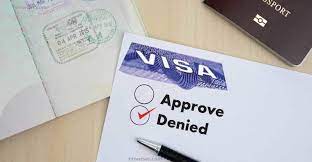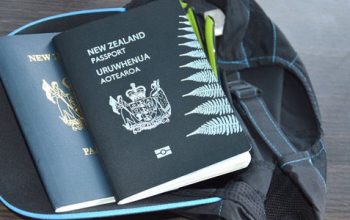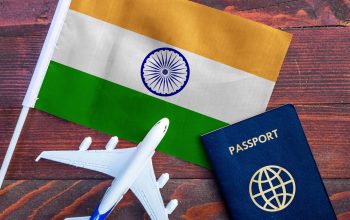Introduction to Indian Tourist Visas
Are you dreaming of exploring the vibrant culture and diverse landscapes of India? Whether you’re captivated by the bustling streets of Delhi, the serene backwaters of Kerala, or the majestic beauty of the Taj Mahal, India offers a plethora of experiences for travelers. To embark on this adventure, you’ll need to secure a tourist visa. This comprehensive guide will walk you through everything you need to know about obtaining a tourist visa for India. TOURIST VISA FOR INDIA
Why Visit India?
India is a land of contrasts and wonders. From the historical splendors of ancient temples to the modern marvels of bustling cities, the country promises a unique travel experience. Its rich heritage, diverse cultures, and delectable cuisine make it a top destination for tourists worldwide. But before you pack your bags, understanding the visa requirements is essential.
Types of Indian Tourist Visas
India offers different types of tourist visas based on the duration and purpose of your visit. Here’s a quick overview:
- e-Tourist Visa (eTV): Ideal for short-term visits, usually up to 60 days. This electronic visa can be obtained online and is suitable for tourism, short-term medical visits, or business meetings.
- Regular Tourist Visa: For longer stays, this visa is stamped in your passport and can be valid for 6 months to 10 years, depending on your nationality and the consulate’s discretion.
Eligibility Criteria for an Indian Tourist Visa
General Eligibility Requirements
To apply for an Indian tourist visa, you generally need to meet the following criteria:
- Valid Passport: Your passport should be valid for at least six months beyond your planned stay in India.
- Photographs: Recent passport-sized photographs that meet the specifications set by the Indian consulate.
- Proof of Travel: Evidence of onward and return travel, such as flight bookings.
- Financial Stability: Proof that you have sufficient funds to cover your stay in India. BUSINESS VISA FOR INDIA
Special Considerations for Different Nationalities
Visa requirements can vary based on your nationality. Some countries may have additional requirements or specific procedures. Always check the latest guidelines from the Indian embassy or consulate in your country.
How to Apply for an Indian Tourist Visa
Online Application Process
Applying for an e-Tourist Visa is a straightforward process. Here’s how you can do it:
- Visit the Official Website: Go to the Indian government’s e-Visa website.
- Fill Out the Application Form: Provide personal details, travel information, and passport data.
- Upload Required Documents: This includes your passport photo and a scanned copy of your passport’s bio page.
- Pay the Visa Fee: Fees vary depending on your nationality and the duration of stay.
- Submit the Application: Review your information carefully before submission.
- Receive e-Visa: If approved, you will receive your e-Tourist Visa via email.
In-Person Application Process
For regular tourist visas, you may need to apply in person at an Indian embassy or consulate. Follow these steps:
- Complete the Application Form: Available at the consulate or online.
- Gather Documents: Include your passport, photographs, proof of travel, and financial documents.
- Pay the Visa Fee: Fees vary and must be paid according to consulate instructions.
- Attend an Interview (if required): Some consulates may require an interview.
- Wait for Processing: Processing times can vary.
Documents Required
- Valid passport
- Recent passport-sized photographs
- Proof of travel arrangements
- Financial proof
- Any additional documents required by the specific consulate
Application Fees
Visa fees depend on the type of visa and your nationality. Typically, e-Tourist Visas are less expensive than regular tourist visas.
Processing Time and Visa Validity
Typical Processing Times
The processing time for an e-Tourist Visa is usually within 72 hours. For regular tourist visas, it can take anywhere from a few days to several weeks, depending on the consulate and your nationality.
Visa Validity and Extensions
e-Tourist Visas are usually valid for 60 days and cannot be extended. Regular tourist visas can be valid for longer periods but may require renewal if you wish to stay beyond the initial validity.
Tips for a Smooth Visa Application Process
Common Mistakes to Avoid
- Incorrect Information: Ensure all details on your application are accurate and match your passport.
- Missing Documents: Double-check that you’ve included all required documents.
- Late Application: Apply well in advance to avoid any last-minute issues.
Helpful Resources
- Indian Government e-Visa Portal: For the latest information and application forms.
- Embassy Websites: Check the specific requirements and procedures for your nationality.
What to Do If Your Visa is Denied
Reasons for Visa Denial
Common reasons for visa denial include incomplete applications, discrepancies in documents, or failure to meet eligibility criteria.
How to Appeal a Visa Denial
If your visa is denied, you can appeal the decision by contacting the consulate and providing any additional information or documentation that may support your case.
Conclusion
Obtaining a tourist visa for India is a crucial step in your travel planning. By understanding the types of visas available, meeting the eligibility criteria, and following the application process carefully, you can ensure a smooth and successful application. Remember to apply well in advance and double-check all requirements to avoid delays or denials.
FAQs
What is the duration of an Indian tourist visa?
The duration of an Indian tourist visa varies. e-Tourist Visas are typically valid for up to 60 days, while regular tourist visas can be valid for up to 10 years, depending on your nationality and consulate guidelines.
Can I extend my tourist visa for India?
e-Tourist Visas cannot be extended. Regular tourist visas may be extended in certain cases, but you’ll need to apply for an extension before your current visa expires.
Do I need a visa for a short visit to India?
Yes, all foreign nationals need a visa to visit India, regardless of the length of their stay.
How much does an Indian tourist visa cost?
The cost of an Indian tourist visa varies based on the type of visa and your nationality. e-Tourist Visas are generally less expensive than regular tourist visas.
What should I do if I lose my visa while in India?
If you lose your visa while in India, report the loss to the local police and contact the nearest Indian immigration office or embassy for guidance on obtaining a replacement or handling your situation.



